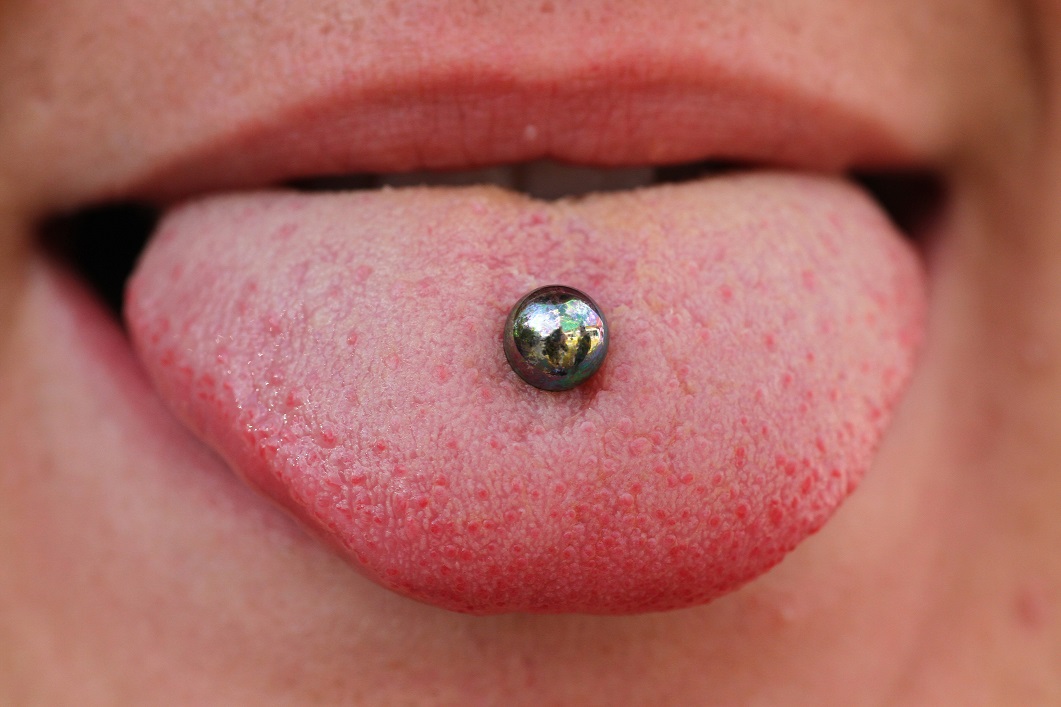
National Piercing Day
Body piercing is a popular form of self-expression.
If you’re thinking about getting an oral piercing, you may be wondering about the relationship between oral piercings and oral health. If you already have an oral piercing, you may want to know more about how you can maintain proper care.
Either way, here are some helpful facts and advise for oral piercings in honor of National Piercing Day.
Oral Piercings
Oral piercings are holes poked anywhere in the tongue, lips, cheeks or uvula (the tissue that hangs in the back of the throat) to hold jewelry. Like with pierced ears, the jewelry used in oral piercings can come in various styles like rings, barbells, and studs.
Risks of Oral Piercings
- Infection, Pain and Swelling. Your mouth is home to huge amounts of bacteria and an ideal place for infection. You are at greater risk of infection immediately after getting the piercing and before the hole is healed. Touching your jewelry with your hands, using tobacco products, and putting other objects in your mouth can increase your risk for infection. Pain and swelling are also common side effects of oral piercings. In extreme cases, swelling could cause your tongue to enlarge, potentially blocking your airway.
- Damage to Gums, Teeth and Fillings. A common habit of biting or playing with your piercing can lead to cracked, scratched or sensitive teeth. Piercings can also damage fillings and injure your gums making you vulnerable to decay, periodontal disease and gum recession.
- Hypersensitivity to Metals. Allergic reactions at he pierced site are possible.
- Nerve Damage. After a piercing, you may experience a numb tongue that is caused by nerve damage that is usually temporary, but can sometimes be permanent. The injured nerve could affect your sense of taste, or how you move your mouth. Damage to your tongues’ blood vessels can cause serious blood clots.
- Change to Oral Function. Oral piercings can interfere with speech, chewing, swallowing and increase saliva production causing excessive drooling.
- Potential Diseases. Be sure to see a trained professional. Piercings with unsanitary needles can increase the risk of contracting diseases such as Hepatitis B, Hepatitis C and HIV.
Care for Oral Piercings
Contact your doctor immediately if you have any signs of infection – swelling, pain, fever, chills, shaking, or a red-streaked appearance around the site of the piercing.
Stay away from smoking and chewing tobacco and avoid compulsive habits that could infect your piercing, like:
- Playing with or rotating jewelry
- Chewing on your fingernails
- Putting a pen, pencil or other objects in your mouth that may harbor bacteria
Once your piercing has healed, be sure to remove your jewelry whenever you are eating, sleeping or playing sports.
Check the tightness of your jewelry periodically. This can help prevent you from swallowing or choking if the jewelry becomes dislodged.
Try to avoid clicking the jewelry against teeth and avoid stress on the piercing. Be gentle and aware of the jewelry’s movement when talking and chewing.
Practice good oral hygiene with particular attention to your jewelry and your piercing.
- Brush at least twice a day
- Floss or clean between your teeth
- Use antimicrobial mouth rinses often, especially after meals
- See your dentist regularly for cleanings
Leave a reply →
